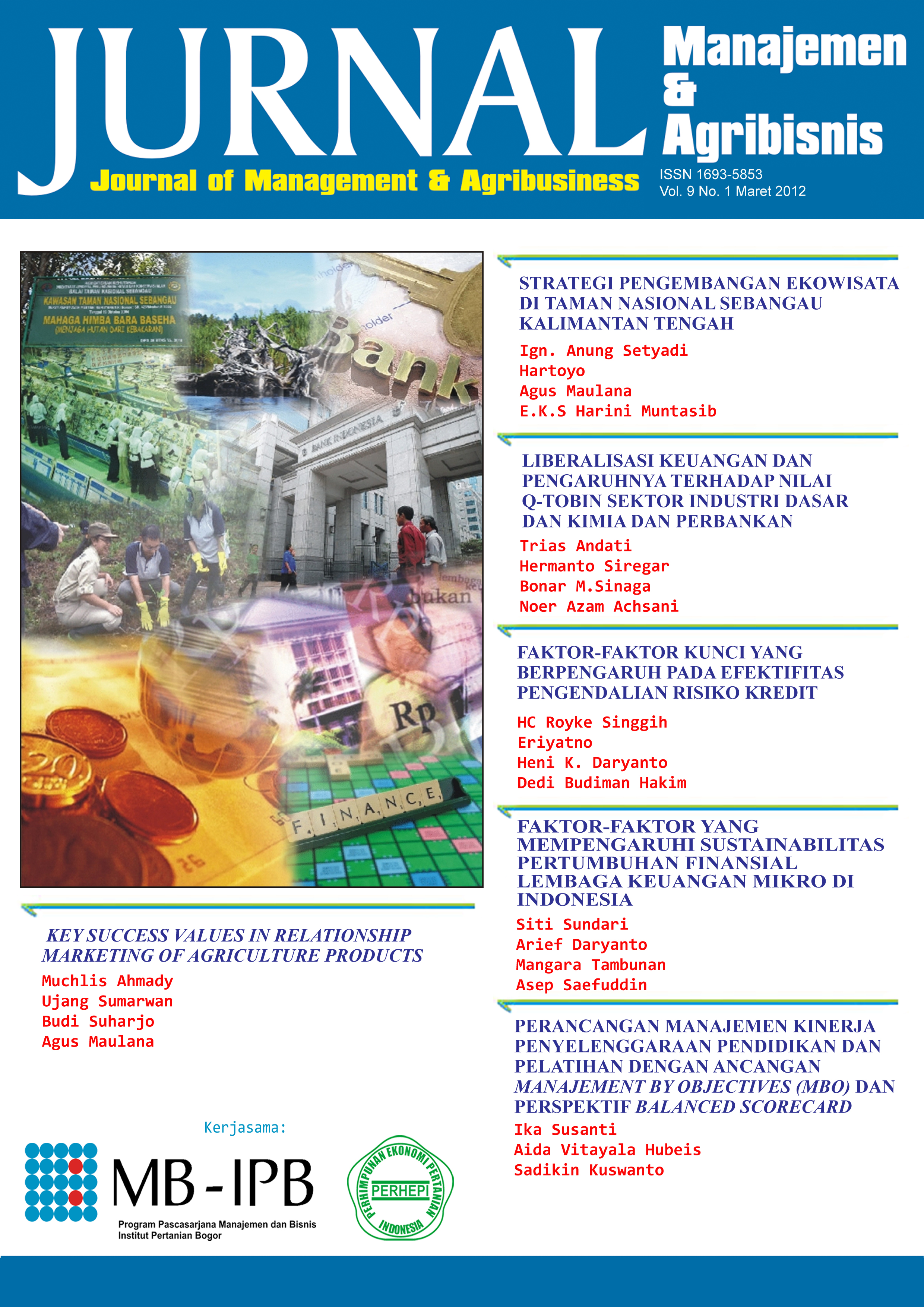PERANCANGAN MANAJEMEN KINERJA PENYELENGGARAAN PENDIDIKAN DAN PELATIHAN DENGAN ANCANGAN MANAGEMENT BY OBJECTIVES (MBO) DAN PERSPEKTIF BALANCED SCORECARD
Abstract
This research is aimed to make a performance management design based on MBO and Balanced Scorecard perspective approach in order to improve education and training administration. Performance accountability stimulates public sector organizations to improve their performance continuously and to build a performance management system that is oriented not only toward the budget and its realization, but also toward results. This paper discusses MBO and Balanced Scorecard perspective approach in planning and controlling its programs. In addition, this model can be used as a strategic controller for the management to measure the organization’s success and failure. This is a qualitative research approached by a case study using the method of participant observation through questionnaires, in depth-interviews, and focused group discussions. The success of education and training administration is determined by performance achievements of the individual, division, and organization that include financial aspect, participants of the education and training program, Standard Operating Procedure (SOP), administrators of the program, technology, and innovation. The resulted design is a four-stage flowchart describing planning, implementation, measurement, and performance evaluation.
Keywords : Performance Management, Design, Education and Training, Management by Objectives (MBO), Balanced Scorecard Perspective
Authors
Authors who publish with this journal agree to the following terms:
- Authors retain copyright and grant the journal right of first publication with the work simultaneously licensed under a Creative Commons Attribution License that allows others to share the work with an acknowledgement of the work's authorship and initial publication in this journal.
- Authors are able to enter into separate, additional contractual arrangements for the non-exclusive distribution of the journal's published version of the work (e.g., post it to an institutional repository or publish it in a book), with an acknowledgement of its initial publication in this journal.
- Authors are permitted and encouraged to post their work online (e.g., in institutional repositories or on their website) prior to and during the submission process, as it can lead to productive exchanges, as well as earlier and greater citation of published work (See The Effect of Open Access).

